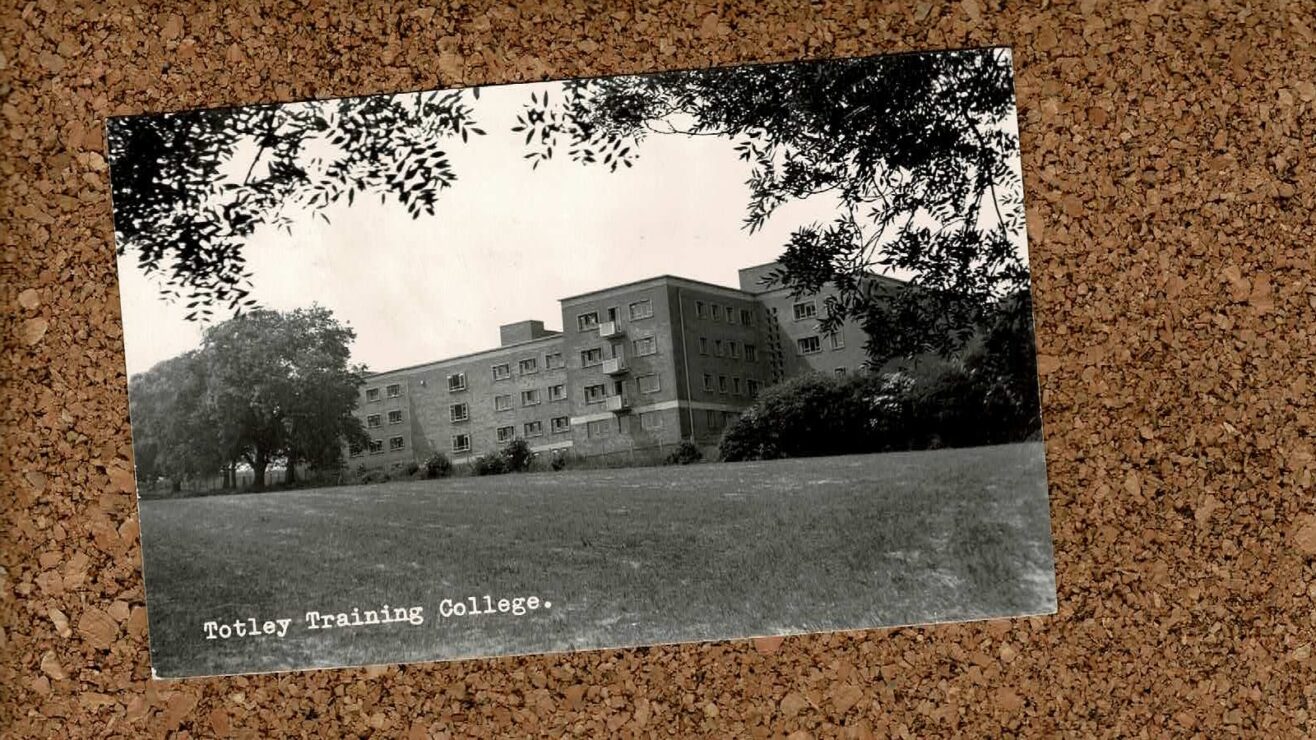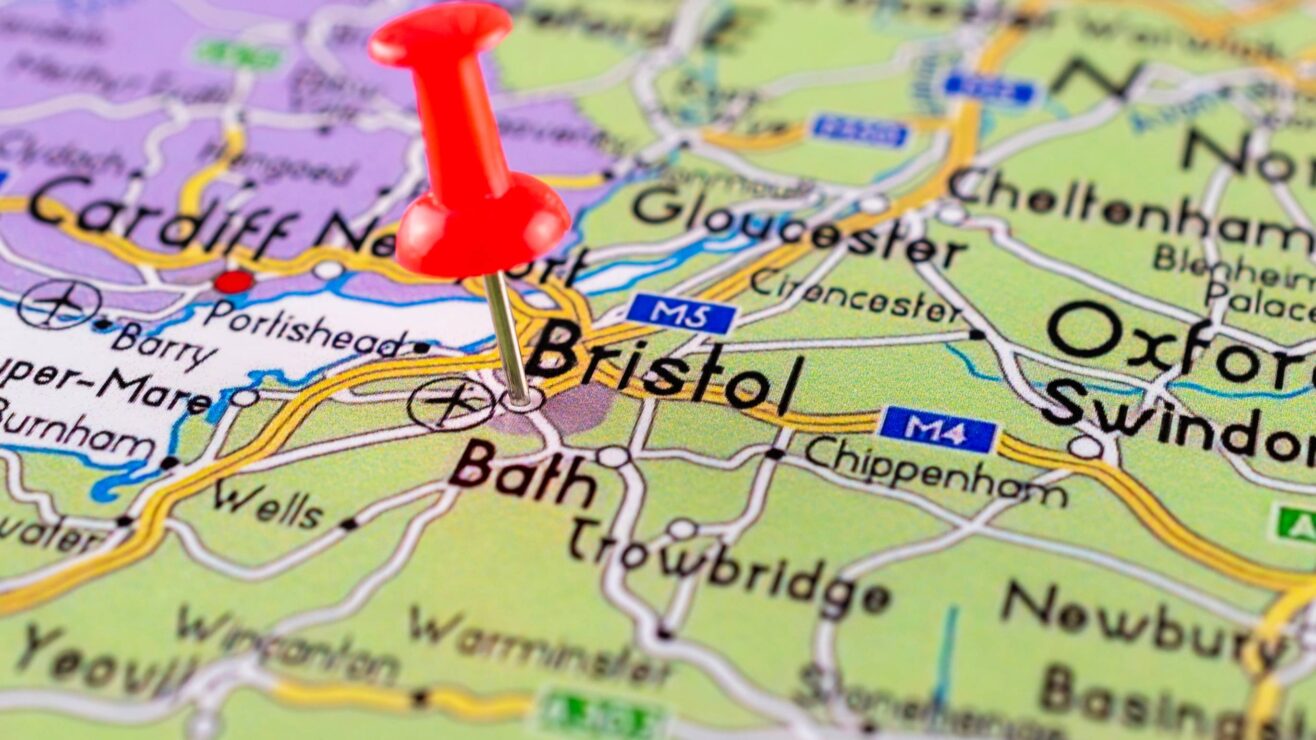I remember it like it was yesterday. Boxing Day, 2009. When I worked as a Director at NUS, I always used to offer to take the press phone over Christmas on the assumption that education (and indeed government) is basically closed over the festive period.
But when the news broke late on Christmas Day that the man popularly referred to as the “Underwear Bomber” had been president of UCL’s Islamic society, I knew that the story would have legs. Umar Farouk Abdulmutallab had attempted to detonate plastic explosives hidden in his underwear while on a flight in the US, and the suggestion was that his involvement in the society at university had been a central component of his radicalisation.
Cue stories and op-eds about the need to monitor students and societies. Commentators jumped on, arguing that free-thinking, radical students were putting the nation at risk by hosting clerics in the midst of the dreamy spires. Vice chancellors variously went to ground, arguing that this was all students’ and students’ unions’ fault anyway. It didn’t matter that the number of cases was tiny, that an education act supported freedom of debate and expression even of radical ideas, that the sheer volume of Muslim students passing through UK HE was bound to mean a case like this eventually, and that even a stopped clock is right twice a day.
The facts fitted the frame.
I remember my shock and frustration in the days that ensued as I juggled trying to have a family Christmas with tapping out quotes for student officers on a Nokia 6210. How could it be that a single story could generate this much coverage, with conclusions so strident? How could politicians be demanding clampdowns on Islamic student societies, with all the damage that would do to campus community relations?
But when I saw parts of my extended family later that Christmas, it all became clear. Existence is based on belief. And there are genuine choices – that all leaders face when beliefs take hold – about whether to retreat to the bubble, or confront, or at least be seen to address an issue.
The other thing I learned is that you can predict light news days, and given the nature of the workday before it, the two over any Christmas are always Boxing Day and New Year’s Day. Christmas 2017 was, therefore, a surprising treat for HE policy types, because both of its predictably light news days ended up dominated by DfE. Jo Johnson’s Limmud speech (a cut ‘n shut of defence of Prevent with a re-relaunch of his no platform/snowflake clampdown) must have caught the eye of an on-duty intern, and the rest is history.
Cue stories and op-eds about the need to monitor students and societies. Commentators jumped on, arguing that free-thinking, radical students were putting the nation at risk by banning words and burning books in the midst of the dreamy spires. Vice chancellors went to ground again, arguing that this was all students’ and students’ unions’ fault anyway. It mattered not that the number of cases was tiny, that charity law was telling SUs to build processes that restricted speakers, that nevertheless no-one appeared to be able to find a single speaker that had actually been banned by a students’ union and that the examples given were the same three we’ve heard all summer.
The facts fitted the frame.
And then social media exploded with the sector’s shock and frustration in the days that ensued as we all juggled trying to have a family Christmas with checking our feeds. How could it be that a single story could generate this much coverage, with conclusions so strident? How could politicians be demanding clampdowns on students and NUS and students’ unions, with all the damage that would do to effective student representation?
I might not have chosen light news day II (at 00.01 in the morning) to foist Toby Young onto HE, but I have a sense of why it was done.
And a glance outside my filter bubble confirms it.
A particular kind of cult
If you hang around (student) politics for long enough, you come to know the features of a particular kind of cult. There’s a belief system with core ideas constantly rehashed, and a tight inner circle of activists, with a larger network along for the ride. Their key players pretend not to know each other. They spend their time not growing a movement but influencing the “average” – through relentless reframing of eye-catching incidents to fit a narrative. Even a stopped clock is right twice a day.
Meet the Revolutionary Communist Party. Not your father’s commies, the RCP was an offshoot of the Revolutionary Communist Group, which had itself split from the International Socialists in the 1970s. Always media savvy, throughout the 70s and 80s it was interested in moral panics like child pornography and the AIDS epidemic, finding ways to reframe ideas and events into hardened concepts and tropes.
By 1997 it was no longer cool to run a “party”, so it chose to propagate its ideas through a magazine called Living Marxism – a kind of Now! album collection of familiar frames to true believers – along with an exotic collection of front groups. The Manifesto Club. Parents with Attitude. Audacity.org. The Institute of Ideas.
If you fancy spending a few weeks through the looking glass, it’s all there. Free speech, “not me speech” and hatred of “PC” culture. Condemnation of “greenthink” and accusations of climate conspiracy. Constant railing against “meddling policymakers” that interfere in our lives. Campaigns against everything from gun control to the banning of tobacco advertising and, most infamous of all, against the banning of child porn. The alignment of the interests of the white working class with issues like this is where the “communism” comes from, and it’s a remarkably prescient set of frames and techniques now in use by populists seizing control of governments and referenda around the world.
LM closed in the early 00s when, following an article that accused ITN of falsifying reports of Bosnian Muslims being held in Serbian concentration camps, the news organisation sued, won £1 million in damages and bankrupted the magazine and its publishers. But – media savvy as ever– the key players reappeared under the guise of “online magazine” Spiked – and they continued to provide (click)bait to a media whose political economy had replaced a yearning to explain facts with a need to find facts that fit templates, and talking heads with opinions the public were already familiar with.
There’s not many of them, but they are everywhere, hiding in plain sight.
Today it retains its tight inner circle. Frank Furedi rails against emotional intelligence and awareness in education. Joanna Williams (a fellow academic from the University of Kent) has spent decades arguing against responding to student input. Brendan O’Neill, who along with a deputy called Tom Slater specialises in free speech ranks and rants, runs Spiked.
And then there’s Claire Fox – the regular on BBC Radio 4’s Moral Maze, famous for importing and then popularising the phrase “snowflake” into the UK, who mainlines on arguments about “offence” and “discomfort”.
There’s an outer circle too. Peter Tatchell pops up regularly to talk about being no platformed. Columnist Julie Bindel repeatedly bemoans an NUS ban that never was. Munira Mirza – appointed by Boris Johnson as London’s Director of Policy for culture – was a Manifesto Club leading light and a regular rent-a-quote when a panel needs someone to say that diversity is divisive. And Toby Young appears now and again too – pushing PC boundaries, melting snowflakes and bemoaning the hypocrisy in the free speech debate.
There’s not many of them, but they are everywhere, hiding in plain sight. Like that photo of graduates used in 50% of HE press stories online, once you spot them you spot them everywhere, writing op-eds about consent classes, or online censorship, or snowflakes. And they appear on public panels without making clear they know each other – most recently appearing before Parliament’s Joint Committee on Human Rights to give so-called evidence on freedom of speech. You can watch the session where Denis Hayes (another leading figure in the group), Williams and Slater – spouting the same set of anecdotes to lawmakers that we read all summer – deliberately conflate academic freedom of speech with all sorts of other things (behaviour codes, “PC” culture) to manufacture their outrage.
No platform
The debate about freedom of speech is as old as debate itself, and I’ve written about the modern history of the debate over no platforming before. It reappears every so often, cheered on by a press permanently fascinated by a young generation that might want to challenge the behaviours and values of the old.
In the 1970s and 1980s the debate centred on race – with students concerned about the National Front, the BNP and the pro-apartheid attitudes of backbenchers choosing to protest and uninvite rather than sit back – resulting in an unnecessary amendment to the Education Act in 1986 (now being endlessly rehashed as new and decisive action).
But for the odd skirmish about evangelical Christianity, the BNP or abortion, the 90s and 00s saw the pressure come off – largely because it was student leaders and students’ unions that were being proactive about the anti-Semitism and outright racism of Hizb ut–Tahir flooding campuses with pretend societies and inciteful speakers long before the government told them not to under the guise of Prevent.
Work developed at the time by NUS, UUK and student groups like FOSIS and UJS exemplify sensible, nuanced policy making – a salient commitment to freedom of speech, but delivered in a way that doesn’t harm and guarantees access.
Presumably upset by this type of liberal logic – and seeking revenge for their student activists being mocked within SUs and NUS for decades, Spiked launched its masterstroke in 2015. Rampant marketisation had caused a proliferation of league tables and rankings that would fill electronic inches, and so the Free Speech Rankings were born – aimed initially at students’ unions.
In this world racist “banter” wasn’t oppression – it was merely something the new authoritarians found “offensive”. Choosing not to stock something or invite someone wasn’t a proud display or collective democratic decision making – it was a “ban”. Sexual harassment policies aren’t an escape from oppression; they are oppression. “We don’t need these people to keep us safe”, suggests Brendan at the Oxford Union. “We are strong”, suggests O Neill. “They are weak”.
The year that ensued was particularly tricky for students’ unions – and we felt pretty lonely as university press offices tried to stress that SUs were separate and VCs went to ground until it all went away.
Never mind that there was almost no evidence of any SU actually banning anyone. The political economy of the news, the populism of Trump and Brexit and Claire Fox’s #1 Hit “Special Snowflakes” kept it all going – to the point where this year the higher education minister felt compelled to launch (and then regularly relaunch) a regulator for HE not through the optic of teaching, or value or money, or empowering complainants – but by announcing a crackdown on “student snowflakes”.
Fifteen feet of pure, white snow
The choice of “snowflake” to describe student activists is particularly interesting. Back in the 70s and 80s, the student activists and leaders were branded as aggressive thugs. But the rise of women and LGBT+ students involved in student activism and students’ unions – along with LM’s hatred of “PC” and its obsession with white, working-class men meant a new frame was necessary.
Women? LGBT+? This generation can’t be strong thugs – they must fit the gender and sexuality tropes necessary. They’re weak. They’re emotional. They’re hysterical. Their “mental health problems” are always in parentheses. Their weakness leads to “trigger warnings”, and their “intolerance” leads to “no-platforming”.
Even a stopped clock is right twice a day.
Given the geopolitical factors, it’s not a particular surprise that the clock still hasn’t moved on. But what is surprising is the enthusiasm with which ministers, parliamentarians and now even Michael Barber, the chair of the government’s new regulator for English universities – a man promoted as focussed on data and evidence – look to have bought the old LM twaddle, driven merely by anecdotes about sombreros and jazz hands. Converting dodgy rankings into serious regulation.
“We will stand for the widest possible definition of freedom of speech – anything within the law”, says Barber in his piece in THE. He recalls a time when he read “The Theory of Possessive Individualism” and felt uncomfortable as if at some stage NUS was trying to ban C. B. Macpherson.
“Admittedly, this had nothing to do with my identity” (you don’t say) [but] “my Pakistani friend … enrolled in a comparative religion class and suddenly found himself faced with questions that challenged his religion, culture, upbringing and, yes, identity. Uncomfortable for sure. And life-changing”.
There it is – the LM right to be “offended” – via a crackdown on people like the student activist he met. “A well-informed student I spoke to agreed that freedom of speech was important but added that it might need to be limited in relation to questions of identity because otherwise, it might make some people feel uncomfortable”.
Sit down and shut up
I’ve worked with student activists and leaders and sabbatical officers for over 20 years – in small colleges and large universities, in institutions, SUs and NUS. The truth is, I’ve barely ever met a single one with a real desire to censor ideas or stifle debate, or police speech. It’s more desperation to avoid hurting other people’s feelings by displaying inadvertent prejudice, and a real determination to tackle the world around them.
- There are the students who weren’t prepared to put up with being groped in nightclubs anymore – and had the temerity to launch social norming campaigns and behaviour codes amongst students long before universities were shamed into joining in.
- There are the students who, when running their own shop, didn’t want to profit from selling The Sun. N.B. not wanting to profit from the sales – not banning it, or geoblocking the URL on Eduroam, or confiscating copies from the local Tesco. They just got together and decided through open debate what they wanted to sell to each other.
- There are the students who wanted us to ask other students not to “black up” at social events, or to parade around at fancy dress events mocking people of colour or people that are poor.
- There’s the student who wanted to know what to do about her “handsy” lecturer for whom women had developed avoidance techniques over 20 years.
- There are the students campaigning to have some reading from talented people and thinkers that aren’t white.
- There are the Jewish students who spent much of the 00s sick of having Hizb ut-Tahrir organising front societies to spread vile messages of anti-Semitism.
- There are the LGBT+ students who weren’t happy that the hockey team thought it was just “bants” to play Gay Chicken on their way to fixtures.
- There are the students who wanted to get through a night out without a DJ playing “Blurred Lines”, slurring down the mic that it was time for the “lads” to go “blur the lines with the ladies”, with obvious consequences.
- And then there are the students – not studying politics or philosophy or religion – who just wanted to get through the day without having to justify their own identity or existence. And the students who just wanted a heads up if their class was about to discuss something they’ll find traumatic, which without warning would prevent their active participation.
The thing is, I think Michael Barber knows all this. I think Jo Johnson did too and I’d be surprised if his successor Sam Gyimah isn’t painfully aware of the lack of evidence behind this agenda.
This is a complex issue, a wicked problem, where it’s necessary to differentiate and listen and understand and categorise and think. But like all of the meta-narratives, what works in my bubble doesn’t work in theirs. I might disagree with the tactics – the damage done to the perception of my line of work, or the credibility of a generation of young people, or the collateral reputational damage done to the Office for Students that I still think has the potential to do real good. But I am starting to understand why.
The battle of ideas
In the students’ union sector, there tend to be two clichéd type models for student leadership. The first is the “head boy or girl” type – polite, constructive characters that dress smartly for university meetings, appear in prospectus photos, and run awareness campaigns. They are concerned for “ordinary” students. They trust power. In my world, they’re called “the right” – but here let’s call them “passive”.
Then there’s the activist type – scruffier, louder, more rebellious; where demonstrations and occupations are the go-to tactics for any campaign. If they do turn up to university meetings, they’re unlikely to have dressed up, and are more likely to disrupt an open day than contribute to it. They are concerned that some students – especially women, LGBT+, BaME and disabled – are not seen as “ordinary” while others are. They distrust power. In my world they’re called “the left”, but here we’ll call them “aggressive”.
The tendency is for both of the archetypes to accuse the other camp of the extremes of the cliché – not least on the floor of NUS Conference, where the bifurcation of a stream of “Yes/No” votes on resolutions forces delegates to choose sides.
And I’ve met hundreds of university leaders over the years who are frustrated at the tactics of the “left” only to be disappointed (or worse, thrilled) when they’re apparently replaced by the emptiness of the “right”.
But day to day, most student activists and leaders embody neither of the clichés. They’re just plain old assertive. They challenge authority. They point out elephants in the room and raise uncomfortable things at uncomfortable times in uncomfortable ways. They do appear in prospectus photos, and they do go on protests, but they also present evidence and make arguments and provoke the powerful. They tackle each other’s behaviour. And they’re genuinely brave.
Almost uniquely in the UK, we have built a powerful set of organisations and processes and people within our HE sector capable of delivering more local accountability and transparency within a university than the Office for Students will likely ever achieve – and we should be proud of it.
But they’re under the cosh – and some in the sector don’t help. HE types (especially in management positions) can get frustrated with the concerns and behaviours of so-called snowflakes when what they want is “student” input. It’s true that some students are louder than others. It’s true that some lose their temper. Some take up leadership positions. Some are more “extreme”. But it’s not the point.
To imagine that the people putting their head above the parapet are unrepresentative or dismissable is dangerous. Remember that HEPI research – 76% of students express some support for no platform. 68% of students support trigger warnings. 51% of students think universities should sometimes or always get rid of memorials to controversial historical figures and 55% think universities should be safe spaces where debate takes place within specific guidelines.
For the faux outrage of the Living Marxism mob and intergenerationally irritated baby boomer HE leaders, this lack of faith in freedom, democracy and debate is baffling. But can you blame them? For students, the free speech revolution created through endless streams of internet-enabled communication is exhausting.
And when we tell them that free and fair debate will win out – only to find that a lie on the side of a bus can pull us into economic suicide and an incoherent, narcissistic predator can lose debates but end up as the leader of the free world – we ought to realise that our exhortations will sound empty.
Despite all of this they do believe in freedom of speech – passionately. They just want everyone to be able to access it. They are sometimes inconsistent and hypocritical. They can look unrepresentative, but they represent something deeper. They are beacons for disclosure and carry astonishing burdens from students inspired by them. They are brave, not weak. And their emotional intelligence and focus shames most of us.
Of course, they can tend to use baffling and exclusionary language, creating rarified environments that seem hard to access. How do you think they feel in university committees? Or watching Parliament? And they can be dogmatic, and difficult, and occasionally just daft. But the yesbutism of parts of HE in that year they came for SUs (exemplified in the Cardiff VC evidence to the JCHR) — full of dismissal like “where’s your evidence”, or “you’re inconsistent”, or “what about the university’s reputation” didn’t help – and now look at the mess we’re in.
Because the whole of HE is one big special snowflake snow storm right now.
There is no freedom of speech problem in UK universities. But there is an endless, coordinated campaign of tropey stories where the facts are secondary to the frame — a runaway train that left the Spiked station some time ago but is now firmly out of control. There’s a ministerial crackdown, and a concerned regulator and a cross-party enquiry.
Over the years, my real concern for the snowflakes has been their inability to persuade others. There is a comfort in shared language and frames that can lead to laziness about growing, or bursting, the social bubble. Like there was in Remain or in Hillary Clinton’s campaign.
And like there is right now in HE.
I’m not sure whether this pseudo-intellectual version of populism – being propagated by the likes of both Johnson brothers, Michael Gove, Nick Timothy, Andrew Adonis and the Revolutionary Community Party is being coordinated – or just memetically transferred and adopted as people cast around to capture the anger of the oppressed without actually doing a Trump.
But I am sure that right now HE is on the wrong side of it. We look isolated, smug and defensive. We embody their clichés.
We need new frames – positive, crafted, tested and relentlessly promoted – and we need to get out of our bubbles and into theirs.
Ultimately, for the snowflakes, the intergenerational injustice is real. The lack of faith in democracy and freedom of speech is understandable. The understanding of mental health, behaviour and emotion is inspiring. They are who we wished we were then, who we wish we could be now – and soon enough, they’ll be us.
They’re not kids that want our help, nor are they always right or fit to lead higher education. But they are our colleagues, partners, comrades, customers, members, clients – our equals. And in the battle of ideas ahead, we’ll need them.














This should be submitted to the Joint Select Committee
More quotable than Mean Girls, ★★★★
Good stuff, Jim! ‘The Institute of Funny Ideas’ need exposure – they spend too much time talking to each other and to us on the Beeb and elsewhere so let’s have a bit of no-platform for them please!
This is an outstanding piece. And your piece on the history of no platforming was insightful and nicely compliments this. Needs a bit of an edit in the first section though, there’s a repeat of a couple of paragraphs… You can chop: ‘Cue stories and op-eds about the need to monitor students and societies. Commentators jumped on, arguing that free-thinking, radical students were putting the nation at risk by banning words and burning books in the midst of the dreamy spires. Vice chancellors went to ground again, arguing that this was all students’ and students’ unions’ fault anyway. It mattered… Read more »
Beautifully written, and very helpful.
It’s intentional.
Excellent. It’s mind-numbingly exhausting challenging vacuous sophistry posing as acerbic acuity. If someone had time to distil this into ten points, it would be immensely effective.
Everyone should read this. Thank you so much for writing it
I think there is a big issue with free speech on campus. The prevention of Bill Etheridge’s talk (outspoken UKIP MEP), late last year at Sussex was disgraceful. Having been invited, he was judged a risk to safe space policy, and told he must submit his speech for vetting. I believe very many Universities have such policies. Of course anyone with an ounce of self respect would refuse. So de facto he was banned. You don’t have to agree with Etheridge’s politics to see this as censorious. Feminist Heather Brunskell-Evans had an invite to speak withdrawn at her own institution… Read more »
For those of us who actually had to deal with disruptive events in the early 1980s, s.43 Education (No 2) Act 1986 did at least bring a requirement for governing bodies to protect free speech through a published code. How we coped before that was to send in staff to physically separate the two sides, as illustrated in this photo https://www.flickr.com/photos/40211230@N00/262250530/ where I played the role of ‘piggy in the middle’. Some such events, not this one, involved physical violence. So having a requirement to approve controversial visits in advance did help, I can testify.